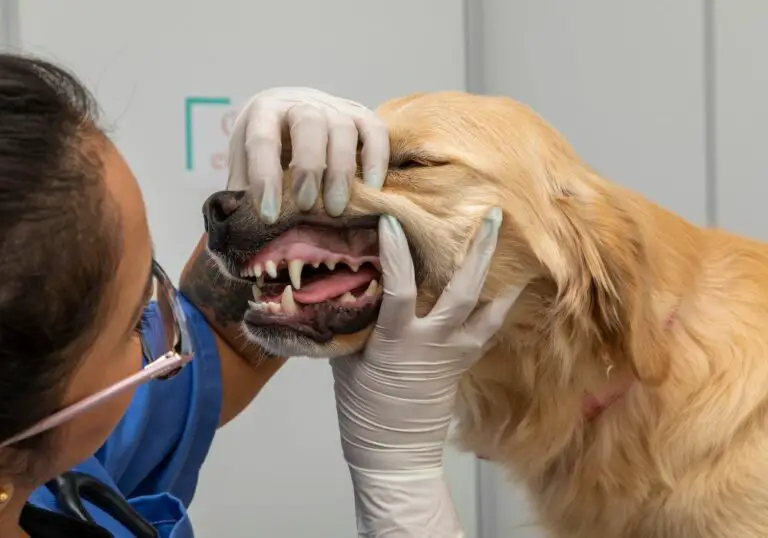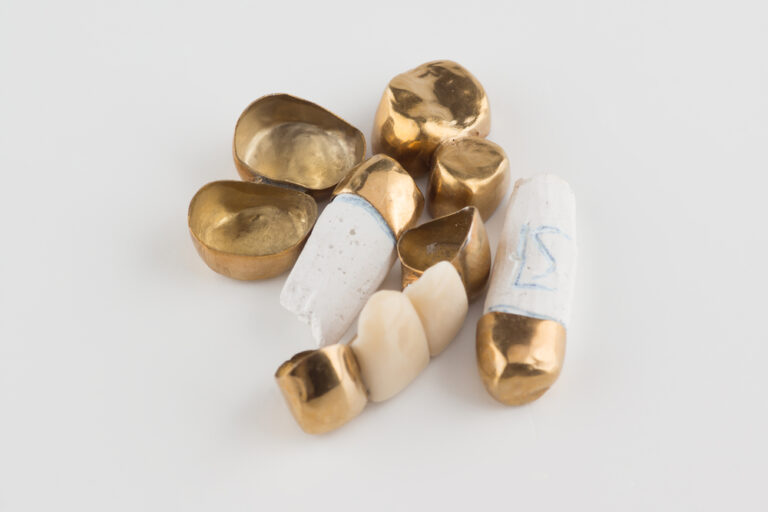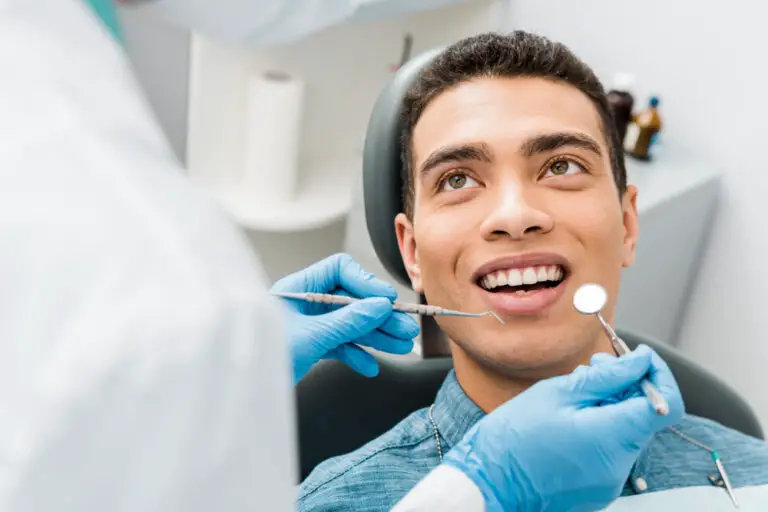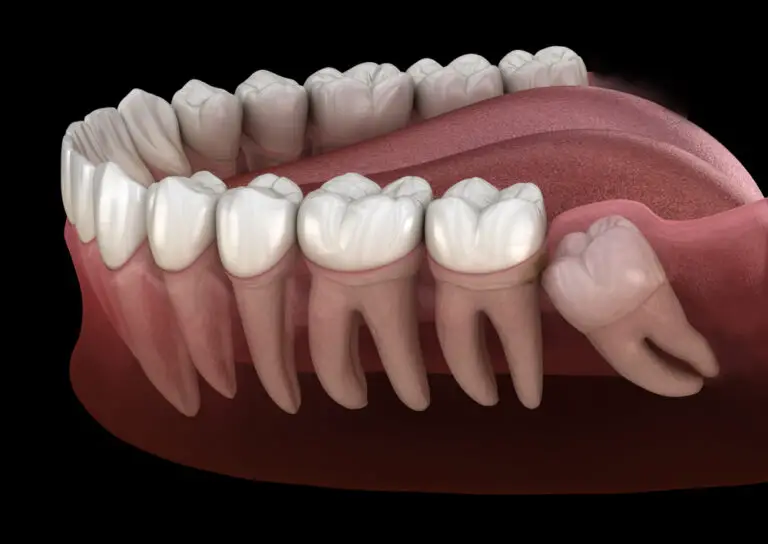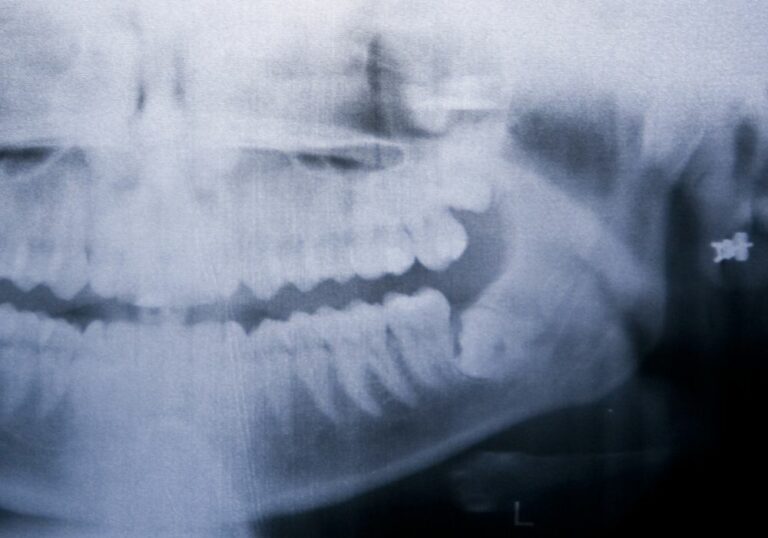Chewing gum is an enjoyable habit for many people. The act of chewing provides stress relief, fresh breath, and just something to do with your mouth. However, some gum chewers experience an unpleasant side effect – tooth pain. If your teeth have ever hurt after chewing gum, you’re not alone. But what causes this dental discomfort?
In this comprehensive guide, we’ll explore the various reasons you may get tooth pain from chewing gum. We’ll also provide tips to prevent gum-related toothaches.
Common Causes of Tooth Pain From Gum Chewing
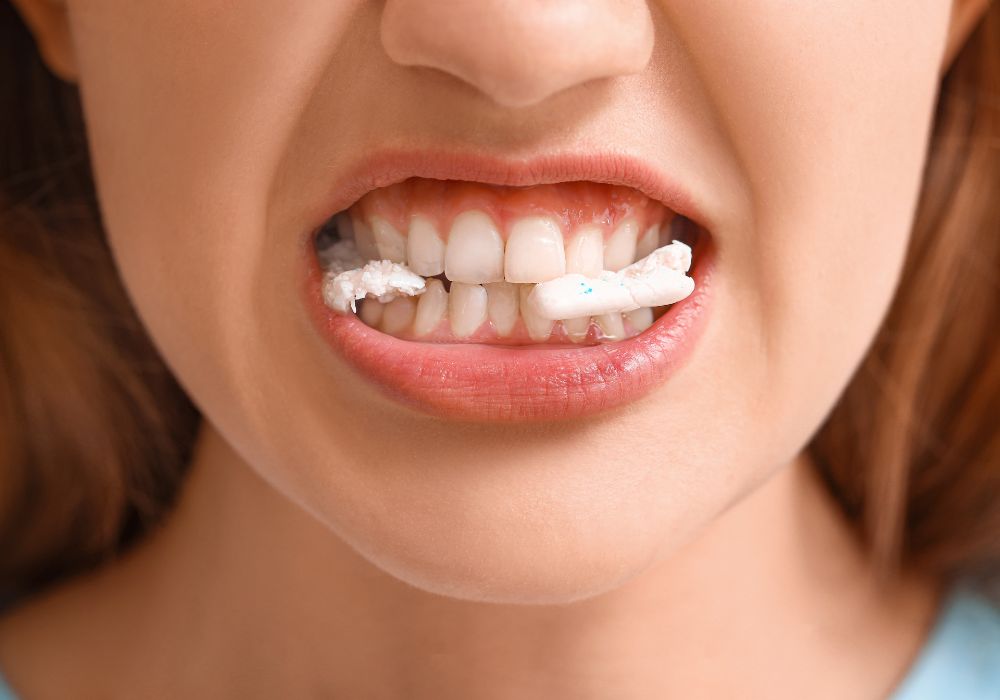
There are several potential explanations for why chewing gum could be hurting your teeth:
1. Excessive Chewing Force
The number one cause of tooth pain from gum chewing is using too much force. Chewing a piece of rubbery gum requires repeated jaw clenching and chewing motion. This can place substantial pressure on the teeth, especially if you’re chewing vigorously.
Overworking the jaw muscles when chewing a tough piece of gum can strain the temporomandibular joint. This may lead to soreness in the jaw joint that radiates to the teeth.
Vigorously chomping on gum can also lead to clenching and grinding of the teeth. All this excessive force transmitted to the teeth is the prime suspect for causing tooth pain from gum.
2. Hard Gum Texture
The firmness and texture of the gum itself can also trigger tooth discomfort. Chewing a very stiff, rigid gum puts more chewing strain on the teeth. Hard gum pieces with tough rubber or resin can force the teeth together with greater pressure compared to soft gums.
Gum containing hard chunks or crystals adds abrasiveness that also makes the teeth work harder during chewing. All this can contribute to tooth pain, especially if the gum is chewed vigorously.
3. Duration of Chewing
How long you regularly chew pieces of gum factors heavily in gum-related tooth pain. Extended chewing sessions place prolonged strain on the jaw joints and teeth. The longer you chew gum, the more likely it is to cause tooth discomfort.
Chewing gum for hours at a time doesn’t allow the jaw muscles any rest. Fatiguing these muscles can make them sore and tender. The constant repetitive chewing motion also tires out the ligaments holding the jaw joint, potentially causing pain.
4. Temperature Sensitivity
Drinking or eating hot or cold foods and beverages while chewing gum may trigger tooth sensitivity and pain. This is because temperature extremes can cause dental discomfort in those already prone to sensitive teeth.
The nerve inside the tooth, called the pulp, perceives hot and cold through the dentin layer under the enamel. Drastic temperature swings amplify nerve signals, causing sharp tooth pain.
If you chew cold gum immediately after drinking something hot (or vice versa), the pulp may react. Those with exposed roots, cracks, or thin enamel are most vulnerable to thermal gum pain.
5. Gum Recession
Receding gums from gum disease or aggressive brushing can also lead to tooth pain when chewing gum.
Gum recession causes the tooth roots to become uncovered and exposed. Tooth roots have less enamel protection and are more prone to sensitivity. Chewing forces applied directly to these unprotected roots as you chew gum may elicit pain.
The gums themselves also become extra sensitive when receding. The sticky, pulling motion of gum over these inflamed gums can cause gum pain during chewing.
6. Cavities
Tooth decay from untreated dental caries can cause discomfort when chewing gum. Inside a cavity, the inner tooth pulp becomes inflamed due to leaks and bacterial irritation.
When you chew over the cavity while gumming, the added pressure further inflames the tooth’s inner pulp tissue. This leads to acute pain, especially from temperature changes or sweet gum flavors.
Deep tooth decay exposes the nerves and makes teeth extremely sensitive to chewing forces. A single chew on a piece of gum may trigger severe pain from a cavity touching the pulp.
7. Cracked or Broken Teeth
Fractures, cracks, chips, and craze lines in the tooth enamel make teeth more prone to pain when chewing gum.
Cracked enamel allows pressure, temperature, and irritants to penetrate deeper into the tooth interior. Chewing gum pushes air and fluids into the cracks, stimulating the tooth’s inner nerves and causing pain.
Pieces of broken teeth have lost their protective enamel coating. Gum chewing directly presses and grates against the newly exposed dentin of a broken tooth. This can certainly provoke tooth discomfort.
8. Dental Restorations
Fillings, seals, crowns, and veneers help repair and restore damaged teeth. However, existing dental work can sometimes cause discomfort when chewing gum.
The seal formed between a restoration and the natural tooth may leak over time. Chewing pressure and temperature changes from gum can penetrate through the gap and irritate the vulnerable inner tooth.
If dental restorations don’t fit properly, the uneven biting forces of gum chewing may put strain on the affected teeth. This leads to tooth soreness and pain.
9. Orthodontic Appliances
Braces, aligners, retainers, and other orthodontic appliances apply mechanical force to move teeth. The added chewing force while gumming can place excessive pressure on teeth being repositioned.
Orthodontic hardware like brackets and wires also places extra strain on teeth and gums during chewing. This can potentially cause gum irritation, soreness, and toothaches.
10. Bruxism Habits
Some people unconsciously chew gum more vigorously or grind their teeth while chewing gum. This gum-induced teeth clenching and grinding, known as bruxism, can certainly lead to tooth pain.
The abnormal chewing motion puts extreme strain on the jaw muscles and excessive biting forces on the teeth. This damages tooth enamel and causes muscular soreness that radiates to the teeth. Reducing gum chewing time and chewing intensity helps minimize bruxism issues.
Which Teeth Hurt The Most From Chewing Gum?

The back teeth, such as the molars and premolars, are most likely to hurt from chewing gum. Molars exert the strongest biting and chewing forces, so they endure the most pressure from chronic gum chewing. Lower molars tend to be affected more than upper molars because the lower jaw takes on more chewing strain.
Since front incisors and canines aren’t utilized as much for chewing, they are far less prone to gum pain. However, they may still experience discomfort from temperature sensitivity or decay irritation when chewing gum.
Wisdom teeth are also at risk for gum discomfort since they are difficult to clean and prone to cavities and pericoronitis (gum infection around erupting teeth). Gum chewing can aggravate pain from irritated wisdom teeth.
If only one specific tooth hurts from chewing gum, it may indicate a problem with that particular tooth, like a crack, cavity, or dying pulp. Overall, back molars bear the brunt of chewing forces, making them most vulnerable to gum pain.
Potential Dental Damage From Too Much Gum Chewing
While chewing sugar-free gum in moderation should not harm teeth, excessive gum chewing can potentially damage teeth over time in the following ways:
1. Tooth Wear and Erosion
Some varieties of gum contain acids and sugars that can erode and dissolve tooth enamel when chewed frequently. Citric and malic acids from gum flavorings soften enamel, allowing chewing forces to gradually wear it away.
Even sugar-free gum has traces of erosive acids that can demineralize enamel and cause thinning with consistent over-chewing. Sticky gum can also physically pull off bits of weakened enamel during chewing.
Worn down enamel becomes permanently lost, exposing the more sensitive dentin layer underneath. This leads to temperature sensitivity, tooth decay, and pain from gum chewing forces.
2. Cracked and Broken Teeth
Excessively hard, vigorous chewing motions while chomping on gum may cause teeth to crack or break. The repeated stress can fracture enamel and propagate splits deep into the inner dentin over time.
Cracked teeth quickly develop severe pain when chewing due to gum fluids penetrating the fracture line and stimulating the pulp. Fractured cusps or chunks of broken teeth may need crowns or extraction for relief.
3. TMJ and Jaw Problems
Long or frequent gum chewing sessions can overwork and fatigue the jaw muscles and TMJ joint. This often leads to problems like soreness, tension, clicking, locking, or limited jaw mobility.
TMJ alignment issues from uneven chewing forces while gumming may increase teeth grinding and clenching. This damages tooth enamel, causes muscle and joint pain, and worsens bite alignment.
4. Gum Recession
Intensely chewing thicker gums over many years can cause the gums to recede from abrasion. Receding gums permanently expose the tooth roots and increase dental sensitivity due to lack of protective enamel.
Inflamed and sore gum tissues from vigorous gum chewing are also more prone to developing gum disease. Gingivitis and periodontitis destroy gum and jaw bone support around teeth.
5. Dislodging Dental Work
The repeated chewing motion and sticky nature of gum can potentially loosen, detach, or pull out existing dental fillings, seals, crowns, bridges, and veneers. Loose dental work further irritates the teeth and gums.
Weak old restorations that are already compromised may completely dislodge while chewing gum. The lost restoration then requires an urgent dental visit to reattach or replace.
Warning Signs of Serious Tooth Pain From Gum Chewing

Mild tooth sensitivity or brief soreness from chewing gum is normal. But consistent, severe, or increasing dental pain while gumming is not. Below are some warning signs that indicate an urgent dental exam is needed:
- Unbearable or shooting tooth pain that prevents normal gum chewing
- Extreme temperature sensitivity from hot/cold foods or air while chewing gum
- Lingering toothache or throbbing that lasts for hours or days after chewing gum
- Pain accompanied by facial or gum swelling, pus, bad tastes/smells
- Significant cracking, injury, or physical damage to the tooth surface
- Bleeding, inflamed, or receding gums around the painful tooth
- A loose tooth, or one that has shifted position
These symptoms may signal dental emergencies like an abscess, infection, dying tooth nerve, fracture, or advanced tooth decay decay. Prompt professional treatment is required to resolve the underlying problem and alleviate severe chewing pain.
Preventing Gum Pain in Teeth
You can minimize or avoid tooth pain from chewing gum by following these simple precautions:
Choose The Right Gum
- Select softer gum textures that are easy to chew and less straining on teeth.
- Opt for sugar-free gums to protect tooth enamel.
- Avoid gum with large, hard chunks that may damage dental work.
Monitor Chewing Habits
- Chew gently with relaxed jaws instead of intense, vigorous chomping.
- Take breaks every 10-20 minutes to rest jaw muscles if chewing longer.
- Stop chewing at first signs of tooth discomfort rather than pushing through pain.
- Avoid chewing gum after meals when teeth are extra sensitive.
Manage Hot and Cold Sensitivity
- Hold hot coffee mugs on the opposite side of gum chewing to prevent thermal shock.
- Rinse mouth with cool water if drinking hot liquids before chewing gum.
Get Dental Problems Treated
- Fill any cavities that may be causing chewing discomfort.
- Seek gum disease treatment to reduce gum recession sensitivity.
- Have cracked teeth evaluated and restored.
- Replace old, defective fillings and dental restorations.
Improve Bruxism Habits
- Consciously avoid teeth clenching and grinding motions while chewing gum.
- Use a nightguard if you subconsciously grind teeth from gum chewing during the day.
Check Chewing Surfaces
- Distribute gum evenly on both sides to prevent uneven forces on one area.
- Try chewing gum only on back teeth rather than one sore tooth.
With the right precautions, you can continue enjoying chewing gum without it causing dental damage or toothaches. But seek prompt care from your dentist if gum-related tooth pain persists or worsens.
Common Questions About Chewing Gum and Tooth Pain
Here are answers to some frequently asked questions about why gum can hurt teeth:
Why do my fillings hurt when I chew gum?
Chewing pressure and temperature changes from gum can penetrate underneath defective fillings, causing irritation. Replacing cracked, worn, or leaking fillings can help eliminate this discomfort.
Can gum disease cause pain when chewing gum?
Yes, gum inflammation from gingivitis and periodontitis leads to soreness and exposed roots. Chewing forces exacerbate this gum tissue irritation and sensitivity. Managing gum disease helps reduce gum pain.
Why does my jaw and ear hurt from chewing gum?
Prolonged gum chewing can overwork the jaw muscles and TMJ joint, causing referred pain. Take regular gum breaks and avoid chewing gum for more than 20-30 minutes to prevent muscular fatigue.
Why does gum hurt my teeth with braces?
Braces apply constant mechanical pressure on teeth already. The extra chewing force from gumming can overload and inflame orthodontically-shifted teeth. Go easy when chewing gum with braces.
What oral pain remedies help with gum chewing discomfort?
Topical numbing gels, OTC pain relievers, cold compresses, saltwater rinses, and chewing gum on alternative sides may temporarily relieve gum-related toothaches. But visit a dentist if pain persists.
Conclusion
Chewing gum is an enjoyable habit when done in moderation. But frequent, intense gum chewing can unfortunately lead to tooth sensitivity, damage, and pain issues over time. Being mindful of your chewing force, gum texture, and duration can go a long way in preventing gum discomfort.
Address any underlying dental problems like cavities, cracked teeth, or gum disease to eliminate sources of chewing pain. Promptly consult your dentist if you experience any severe, consistent toothaches triggered by chewing gum. With the proper precautions, you can chew gum safely without hurting your teeth.

